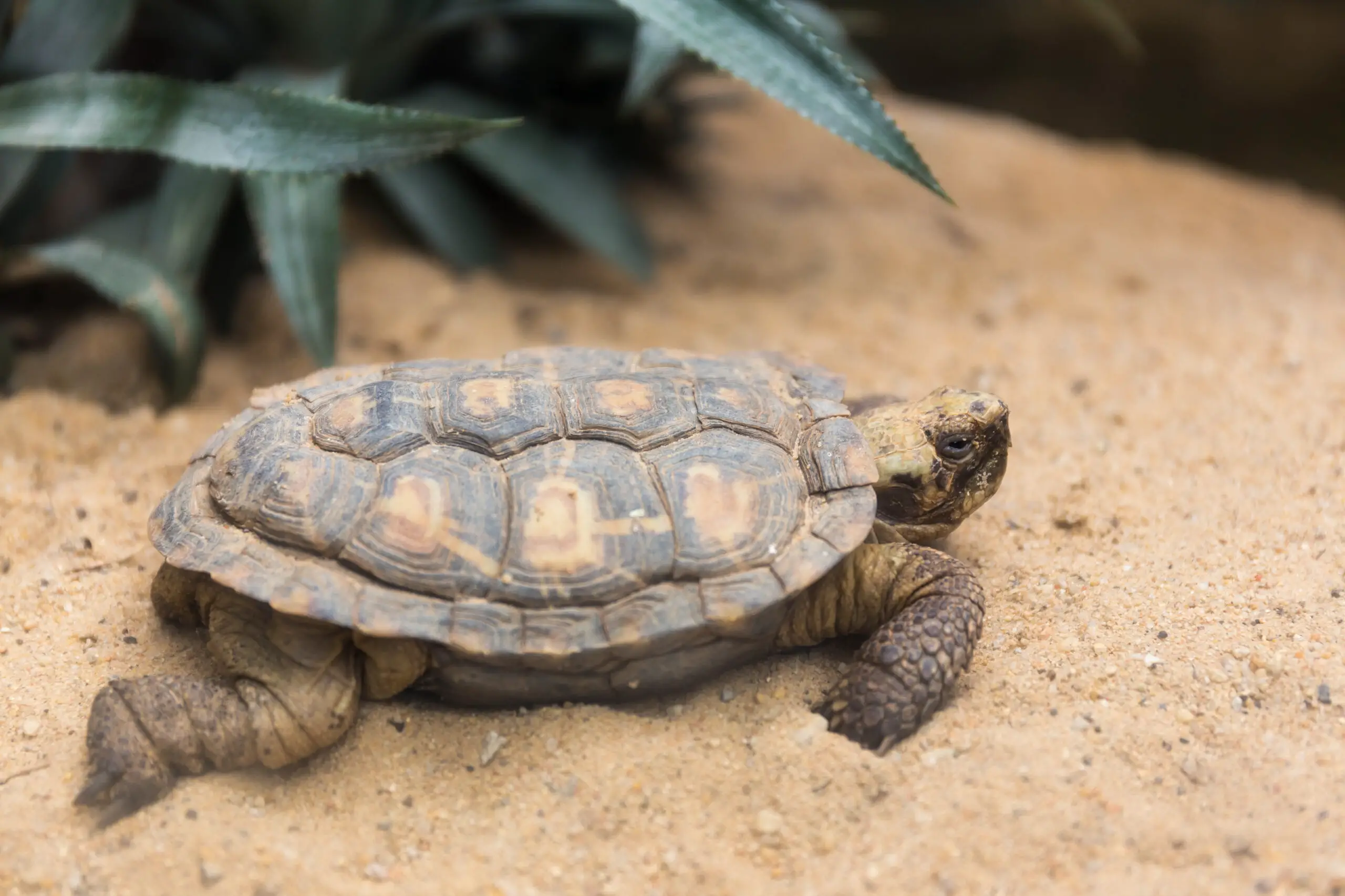Pancake tortoises are fascinating creatures, but unfortunately, they’re endangered. The International Union for Conservation of Nature (IUCN) listed the pancake tortoises as Critically Endangered (CR.)
So, you might wonder, is it legal to own a pancake tortoise?
The answer is a little complicated. There are no laws about owning pancake tortoises. However, it’s illegal to import a wild-caught pancake tortoise.
Do you want to find out more? In today’s article, we’ll tell you everything you need to know about owning a pancake tortoise. Let’s dive in.
Is It Legal to Own a Pancake Tortoise?
In most states, no laws prohibit owning a pancake tortoise. However, there are some restrictions in some states.
In Rhode Island, you can’t keep an endangered turtle species without a permit. Those species include the pancake tortoises, Chaco tortoises, and gopher tortoises. Additionally, North Carolina and South Dakota banned selling or bartering all kinds of turtles.
Buying or Selling Pancake Tortoises
Pancake tortoises are endangered because they face many threats, like deforestation, rock destruction, and the illegal pet trade. The main problem is that many people capture pancake tortoises from the wild to sell them on the international market.
To save the wild pancake tortoises from extinction, it’s now illegal to trade wild pancake tortoises. Additionally, it’s unlawful to sell pancake tortoises under the rules of the Convention on International Trade in Endangered Species of Wild Fauna and Flora (CITES)
The CITES agreement was drafted in Washington, D.C., in 1973. It was established to ensure that the international trading of animals and plants doesn’t threaten their existence. One hundred eighty-three parties signed the international agreement.
The United States, among other countries, now has restrictions on trading pancake tortoises. Additionally, many breeding efforts are going around the world, like in the San Diego Zoo in the United States and Bristol Zoo Gardens in the United Kingdom.
Why Are the Pancake Tortoises Endangered?
Exploitation by the pet trade is the main reason pancake tortoises are endangered. Moreover, the destruction of the habitat is another cause of tortoise endangerment.
Additionally, pancake tortoises have a meager reproductive rate. The female tortoise only lays one egg every four to eight weeks, and not every egg survives until they hatch.
In addition, the eggs take around 4 to 6 months to hatch, and the pancake tortoises usually mature in about 5 to 10 years. So, all these factors make it difficult to breed pancake tortoises.
Are Pancake Tortoises Good Pets?
The first thing you need to know before owning a pancake tortoise as a pet is that it’s a long-term commitment. The average life span of the pancake tortoise is 25 to 40 years.
Unlike most pets, pancake tortoises require low maintenance. Moreover, they’re unique in their way. Of course, they aren’t playful like other pets but are genuinely fascinating creatures.
What Are the Requirements for Owning a Pancake Tortoise?
One of the best things about owning a pancake tortoise is that they’re perfectly okay with living inside or outside. However, pancake tortoises hate humidity. So if you live in a highly humid area, you shouldn’t leave pancake tortoises outside for long periods.
Additionally, pancake tortoises don’t hibernate. Thus, you should bring them inside if it gets too cold outside.
Enclosure Requirements
Before welcoming the pancake tortoise to your house, you need to have a proper enclosure for the tortoise. The enclosure should be broad and tall enough for the tortoise to roam. An example of a suitable indoor enclosure would be a 40-gallon terrarium or, more significantly.
Additionally, pancake tortoises are good climbers. Therefore, you need a moderate height enclosure so they don’t climb out of it.
Installing a lid on your enclosure can keep your tortoise from escaping. Moreover, it can keep your tortoise safe from any threats if you’re housing the tortoise outside the house.
To keep your tortoise friend warm, you’ll need to install a ceramic heat-emitting bulb and a UV bulb with a timer in the enclosure. Set the timer in the lightbulb to work 12 hours a day.
Typically, you’d want the ceramic heat emitter to provide a hotspot of around 100° F. Moreover, the cooler side of the enclosure should be about 75° F. You should keep the heat emitter running 24 hours a day.
To make the pancake tortoises feel at home, you’ll need to provide the tortoises with at least two hiding places. Additionally, pancake tortoises love climbing around. So, you should add a pile of rocks to the enclosure.
What’s more, the pancake tortoises love to dig. Therefore, you should add a loose substrate, like pesticide-free potting soil, bark, or rabbit pellets.
Food and Water
When it comes to water, pancake tortoises require a big, shallow bowl of fresh water in their housing. It should be big enough for your tortoise to soak in it. Additionally, tortoises in captivity tend to poop in the water bowl.
So, you should always make sure that the water bowl is clean. Additionally, it’s best if you keep the water bowl and the food bowl away from each other.
When it comes to food, pancake tortoises love greens! They thrive on grass, vegetables, and other greens in the wild. Therefore, you can feed them vegetables, leaves, dandelions, kale, turnip, carrot, or endive.
It’s best to add reptile calcium and multivitamins to their diet, especially during the breeding season. Additionally, you can treat them with occasional fruits. However, don’t offer fruits to pancake tortoises more than once a month, as it can harm them.
Conclusion
Is it legal to own a pancake tortoise?
There are no laws against owning a pancake tortoise in the U.S. However, you can’t sell pancake tortoises in many states. Additionally, importing wild pancake tortoises is illegal because they’re critically endangered.
All in all, pancake tortoises make good pets. They require low maintenance, and they’re fascinating to observe.




